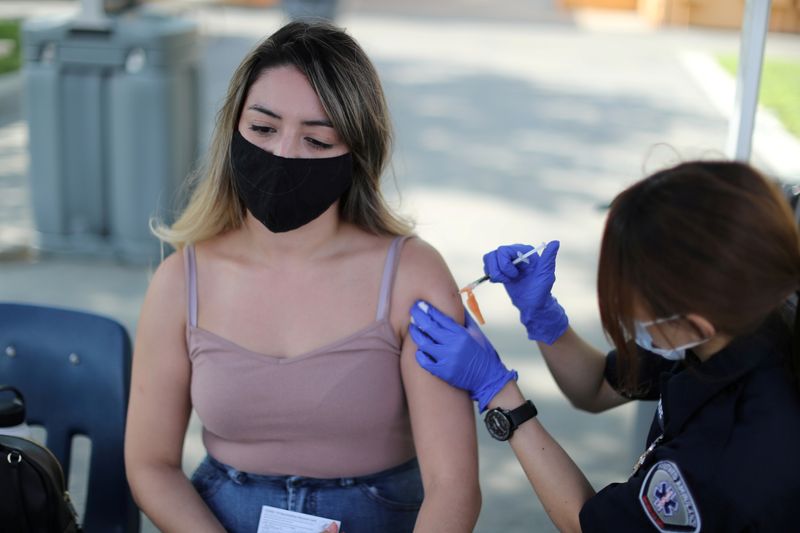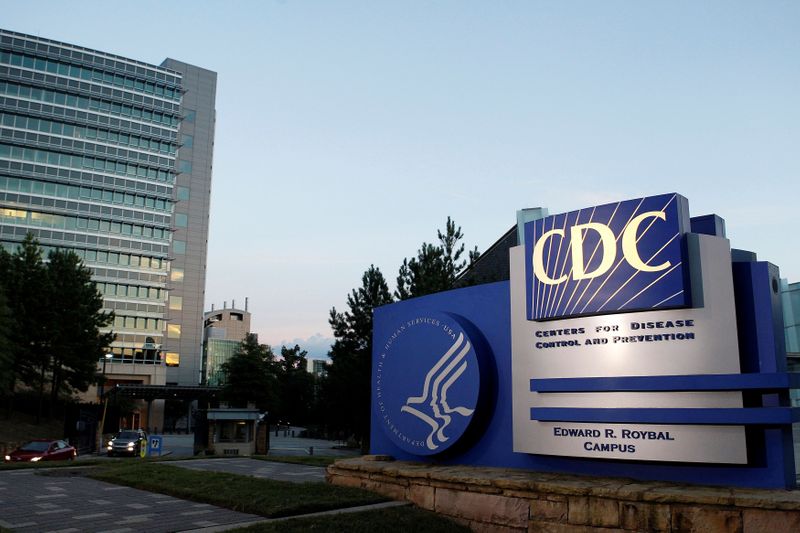By Julie Steenhuysen
CHICAGO (Reuters) - Hard hit by rising cases and hospitalizations, officials in Colorado and California this week have directed healthcare providers to make COVID-19 vaccine boosters available to all adults, overriding more restrictive guidance from the U.S. Centers for Disease Control and Prevention (CDC).
"I think it is kind of remarkable," said Dr. Jesse Goodman, an infectious disease expert at Georgetown University in Washington and a former chief scientist at the Food and Drug Administration (FDA).
Goodman said he believes the new policies may be driven by two factors: "the desire to do anything possible to reduce infections" and to simplify the national guidelines for delivering booster doses that states consider to be too complex.
In California, the state's health department instructed providers to allow people to determine themselves whether they were at high risk in a letter dated Nov. 9, and instructed them not to turn away adults requesting boosters.
In Colorado, Governor Jared Polis on Thursday issued an executive order declaring the state at high-risk for SARS-CoV-2 infection, making every resident 18 or older eligible for a booster shot.
Requests for comment from California's health department and the governor's office in Colorado were not immediately returned.
U.S. President Joe Biden's administration in August announced plans to roll out booster doses for all adults inSeptember, before advisers from the FDA and CDC had recommended a more limited authorization.
Final recommendations were more restrictive, allowing boosters for individuals in several different categories. They are recommended for all fully immunized adults 65 and older who received any of the three vaccines. For younger adults, boosters are only recommended for those with underlying health conditions or those whose jobs or living situations put them at increased risk of COVID-19.
Pfizer Inc (NYSE:PFE) and BioNTech on Tuesday filed for FDA approval for expanded use of its booster for all adults, but the FDA has yet to weigh in.
Dr. Paul Offit, an infectious disease expert at the University of Pennsylvania and a member of the FDA's vaccine advisory panel, said he does not expect the agency's vaccine advisers to hear Pfizer's request for expanded use of its booster shots to all adults.

"It would be great if it did," he said, because the public would likely see some of the same hesitation the advisory panel expressed during the initial review of Pfizer's request for authorization of boosters for all adults.
Offit said he is still not convinced there is a benefit for boosters for those aged 18 to 29, especially in young men, where there a potential risk of a heart inflammation side effect known as myocarditis. "It's rare, but it's real," he said.
